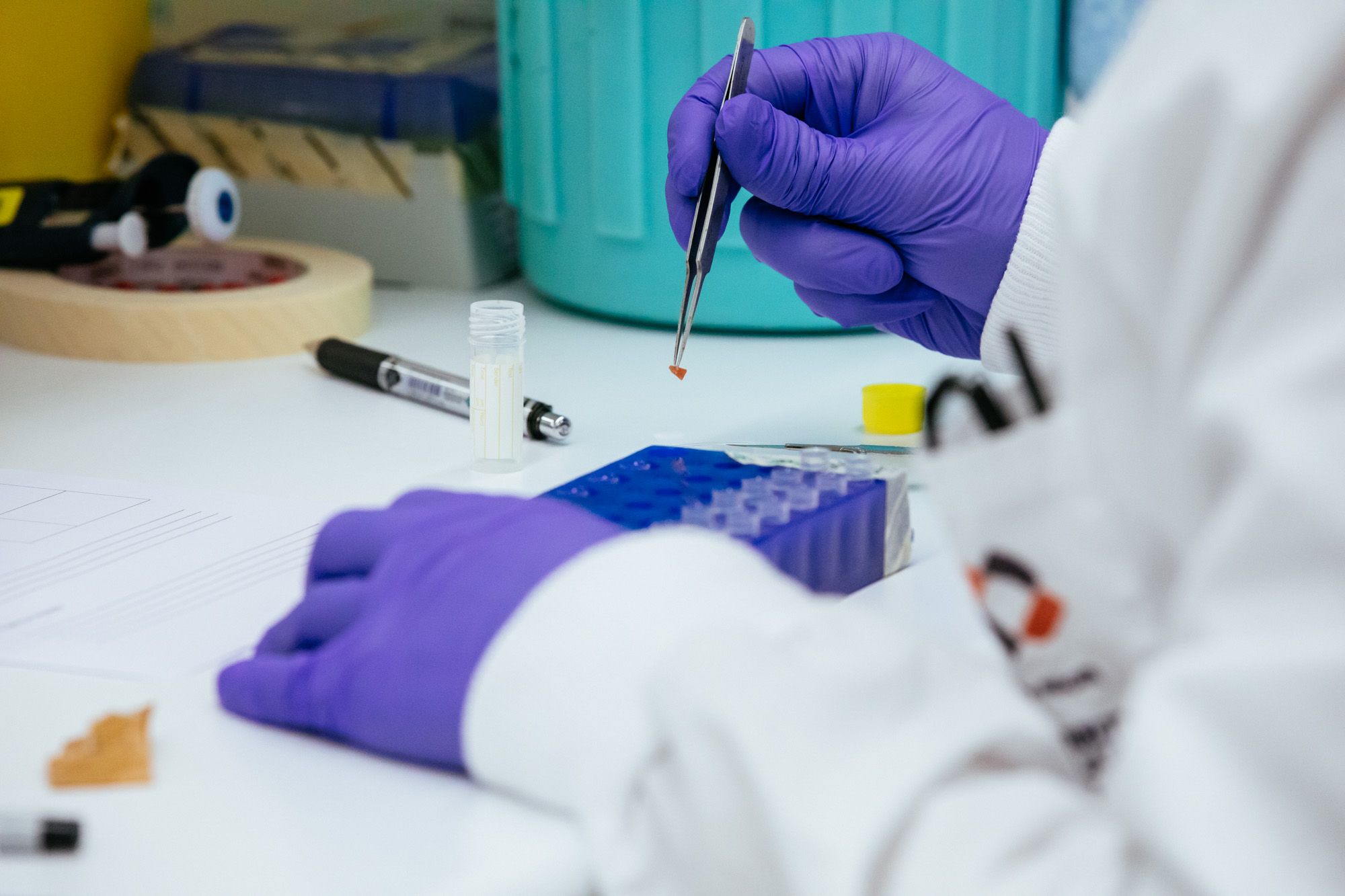
Research Roadmap for Blood Cancer
The Research Roadmap is a 10-year plan that outlines how best to accelerate breakthroughs in blood cancer research in Australia. It highlights the priority areas for research activity and investment, disease priority areas and priority areas in patient care with a focus on fundamental, applied and implementation sciences.
The Leukaemia Foundation has funded the roadmap on behalf of the Blood Cancer Taskforce and the blood cancer community, with the roadmap a key action of the Blood Cancer Taskforce’s National Strategic Action Plan.
The Research Roadmap has been developed by the Australian Academy of Science (AAS) in collaboration with the Australian Academy of Health and Medical Sciences (AAHMS). To develop the roadmap, AAS and AAHMS consulted with researchers, specialists, allied health professionals, patients, caregivers, and governments.
An Expert Steering Group (ESG) was also formed to guide and oversee the development of the Roadmap. Members of the ESG were:
- Professor Andrew Roberts AM FAA FAHMS
- Professor Wendy Erber FAHMS
- Professor Michelle Haber AM FAA FAHMS
- Professor Tim Hughes FAA FAHMS
- Professor Mark Dawson FAA FAHMS
The blood cancer challenge
A leading cause of death
Blood cancers are already the second-largest cause of cancer-related deaths in Australia. They affect Australians at every stage of life from childhood through to old age.
Blood cancer cases in Australia are expected to almost double by 2035 and are predicted to become the most prevalent cancer in Australia.
The growing financial burden
Blood cancers are among the costliest cancers to treat, with myeloma and leukaemia in the top five.
Direct health costs for all blood cancers are predicted to triple to $10.9 billion by 2035.
A Research Roadmap for success
The Research Roadmap presents a national quest to address the urgent and complex challenges posed by blood cancer in Australia: zero preventable blood cancer deaths by 2035.
The Research Roadmap maps a pathway to fast-track research efforts, leverage existing infrastructure and strengths, and build new opportunities and capacity.
The quest: zero preventable deaths by 2035
- The focus: achieve the national quest of zero preventable deaths from blood cancer. More needs to be known about their complexity and their changing incidence.
- The strategy: accelerate discovery now to avoid the negative outcomes of an increasing blood cancer caseload. Translate understanding into new treatments, care, clinical practice, and future prevention.
- The delivery: the Research Roadmap presents the practical steps to achieving the quest. It will be delivered by the blood cancer community, including researchers and research organisations, clinician-researchers, patients and advocacy groups, clinicians and allied health, industry, government.
The Research Roadmap comprises:
- The overarching national quest
- Three missions to address unmet needs
- Three priority areas of focus with specific actions and timelines
Research Roadmap priorities
- Investment in research:
- Increasing funding for blood cancer research – including fundamental research – with dedicated funding streams to tackle areas of particular need, including difficult-to-target and high-mortality cancers.
- Translation of research into practice:
- Improving national coordination of research, incentivising multidisciplinary teamwork, enabling strategic international collaboration and partnerships, and supporting large-scale clinical trials.
- Build the research workforce:
- Bridging the gap between research and clinical care by empowering researchers and clinician researchers with the skills, resources, and support they need to conduct research, advance health and medical knowledge, and improve patient care and outcomes.
To support the quest for zero preventable deaths by 2035, three missions identified to address areas of high unmet need. Each mission offers a new focus for blood cancer research.
- Blood cancers with poor outcomes:
- Need for better options to manage cancers such as acute myeloid leukaemia (AML), poor prognosis multiple myeloma, recurrent aggressive lymphomas, and currently intractable rare blood cancers.
- Causality and potential for prevention and early detection:
- Focus on early detection in populations and the small subset of individuals known to be of high risk of developing a blood cancer from environmental influences, prior cancer therapy, and heritable factors.
- Personalised medicine:
- Integrating advanced genomics, and targeted and cellular therapies in models of care, aiming to change the natural history of blood cancers.

